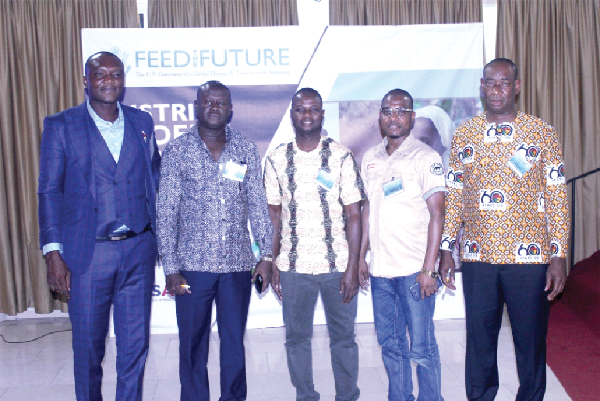The United States Agency for International Development (USAID), under the U.S. government’s Feed the Future Initiative launched its first-ever District Profile Series in Ghana’s northern region. The aim is promote an evidenced-based approach to decision-making and development programming to spur broad-based economic growth in Ghana.
At the launch, Metropolitan, Municipal and District Chief Executives (MMDCEs) in Northern Ghana pledged to develop policies that are backed by evidence-based data to maximize impact at the district level.
A release issued in Accra on August 1 said “The District Profiles Series is a report detailing information on the intervention of USAID projects under the Feed the Future and their anticipated impacts”.
It said “Using district-level data from two population-based surveys in Northern Ghana, USAID, in partnership with the Ghana Government compiled profiles for each of the 58 districts in northern Ghana to identify development gaps and achievements at the district level”.
The release said the first series covers the period 2014-2016, featuring 58 out of the 59 districts in Northern Ghana, and four out of the 10 regions within the territory of Ghana: Upper East Region, Upper West Region, Northern Region, and Brong-Ahafo.
{loadmodule mod_banners,Nativead1}
“The report assesses comprehensive demographic information on each district, including agricultural activities, the dietary diversity of women and children, women’s empowerment and education, as well as water, sanitation and health issues”, the release said.
The release said “At the launch, many of the MMDCES expressed their appreciation for the report”.
The District Chief Executive (DCE) of Gushiegu in the Northern Region, Mr Musah Issah said “This report will help us a lot. If we use the data and information it, we will be able to carve an apt picture about the developmental projects in our districts”.
It said “The report portrays a true image of what is happening in my district and has given me enough insight into the opportunities and challenges in the district.”
The Director of Operations of for USAID’S Monitoring Evaluation and Technical Support Services (METSS II), Mr Saaka Adams explained that district level data was critical to decision-making at the sub-national level to help bridge the information gap at the local government level.
The release said, launched under Feed the Future, the District Profile Series Report will be updated annually to reflect current progress and challenges in the districts.
